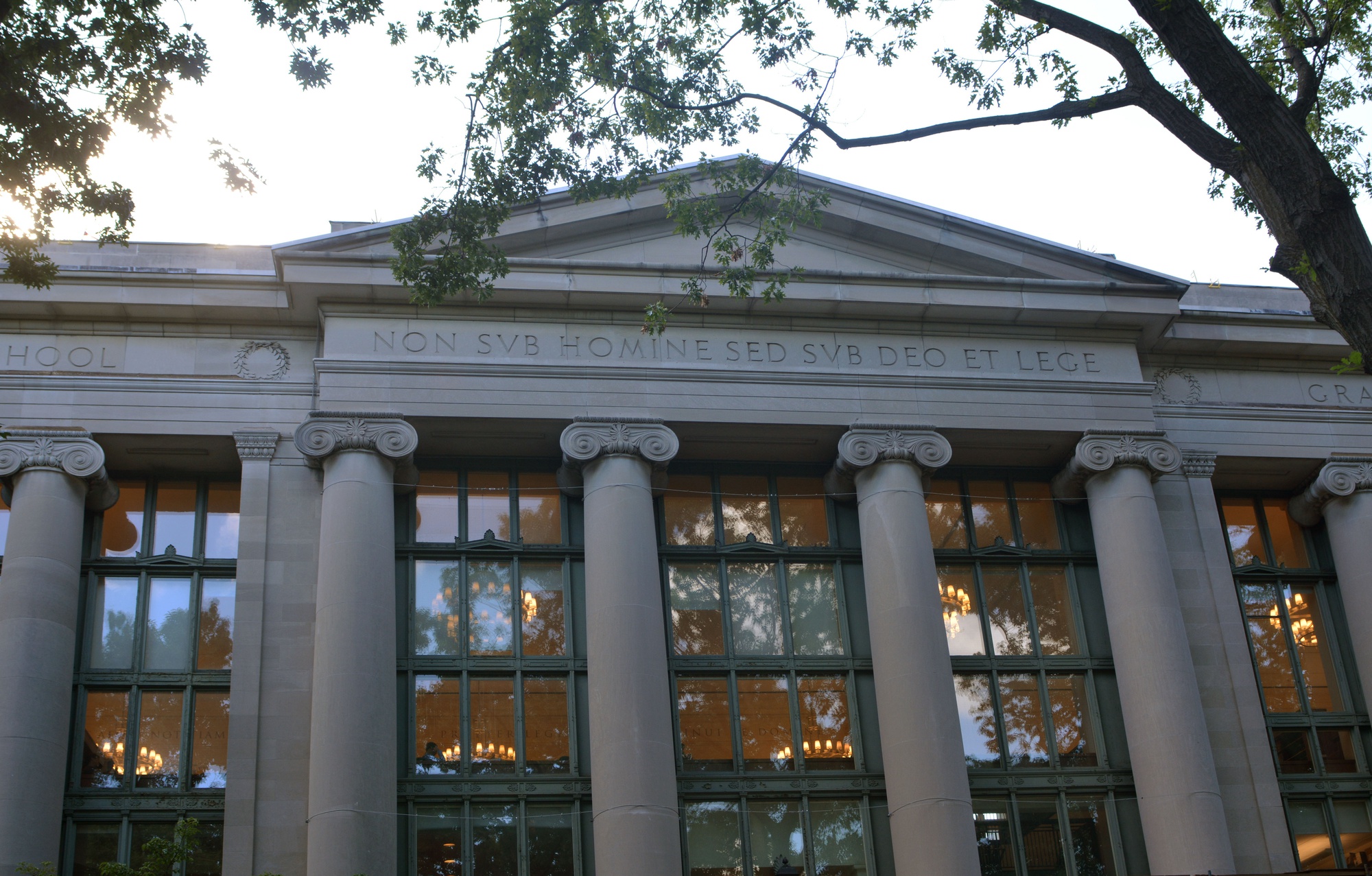
News
News Flash: Memory Shop and Anime Zakka to Open in Harvard Square

News
Harvard Researchers Develop AI-Driven Framework To Study Social Interactions, A Step Forward for Autism Research

News
Harvard Innovation Labs Announces 25 President’s Innovation Challenge Finalists

News
Graduate Student Council To Vote on Meeting Attendance Policy

News
Pop Hits and Politics: At Yardfest, Students Dance to Bedingfield and a Student Band Condemns Trump
Law School Rolls Out New Student Title IX Process

In addition to predictable changes that come with every new school year—new classes, perhaps a new place to live—Harvard Law School students are also adjusting to a major policy change that rolled out over the summer: the new process their school is using to investigate and hear sexual harassment cases.
The procedures, which differ significantly from the approach in place at other Harvard schools, are the product of months of debate among faculty members who pushed for the Law School to adopt the unique model after they raised concerns about Harvard’s protection of the due process rights of the accused. Under the Law School’s new system, an adjudicatory panel of non-Harvard affiliated professionals will rule on violations of Harvard’s University-wide sexual harassment policy, potentially after a hearing. The Law School will provide students involved in a case with an attorney if requested.
Now, with the new process in place, Law School administrators are beginning to educate their students on the intricate and sometimes complex new process. So far, students—the body directly affected by the change—seem mostly unaware of what it entails.

Last semester, before the new process had been fully implemented, Law students interviewed largely said they were not familiar with the specific changes to the school’s procedures.
“At this point, I guess, the procedures themselves were mostly the brainchild of the faculty,” Robert K. Fountain, a Law School student and organizer for student group Harvard Talks Title IX, said last semester.
Months later, students are similarly unsure of the new process’s implications. Administrators finalized the new procedures over the summer, and on Aug. 28, they emailed the full Law School student body informing them of the change. An email, though, may not have been enough to communicate it to everyone, as several students interviewed said they are still not familiar with the procedures that now apply to them.
“This was before school started, so I wasn’t really checking email,” said Faye E. Maison, a third-year Law student.
Leland S. Shelton, also a third-year Law student, said that he does not know many specifics about the new procedures, but he is hopeful that they will help address the problem of campus sexual assault.
“I still haven’t really formed an opinion on those rules. What I do hope is that the new sexual assault policy will curb the sexual assaults that happen on Harvard’s campus, including the Law School’s,” he said.
Law School administrators plan to hold an information session about the new procedures on Sept. 24.
—Staff writer Andrew M. Duehren can be reached at andy.duehren@thecrimson.com. Follow him on Twitter @aduehren.
Want to keep up with breaking news? Subscribe to our email newsletter.
From Our Advertisers

Over 300+ courses at prestigious colleges and universities in the US and UK are at your disposal.

Where you should have gotten your protein since 1998.

Serve as a proctor for Harvard Summer School (HSS) students, either in the Secondary School Program (SSP), General Program (GP), or Pre-College Program.

With an increasingly competitive Law School admissions process, it's important to understand what makes an applicant stand out.

Welcome to your one-stop gifting destination for men and women—it's like your neighborhood holiday shop, but way cooler.

HUSL seeks to create and empower a community of students who are seeking pathways into the Sports Business Industry.
